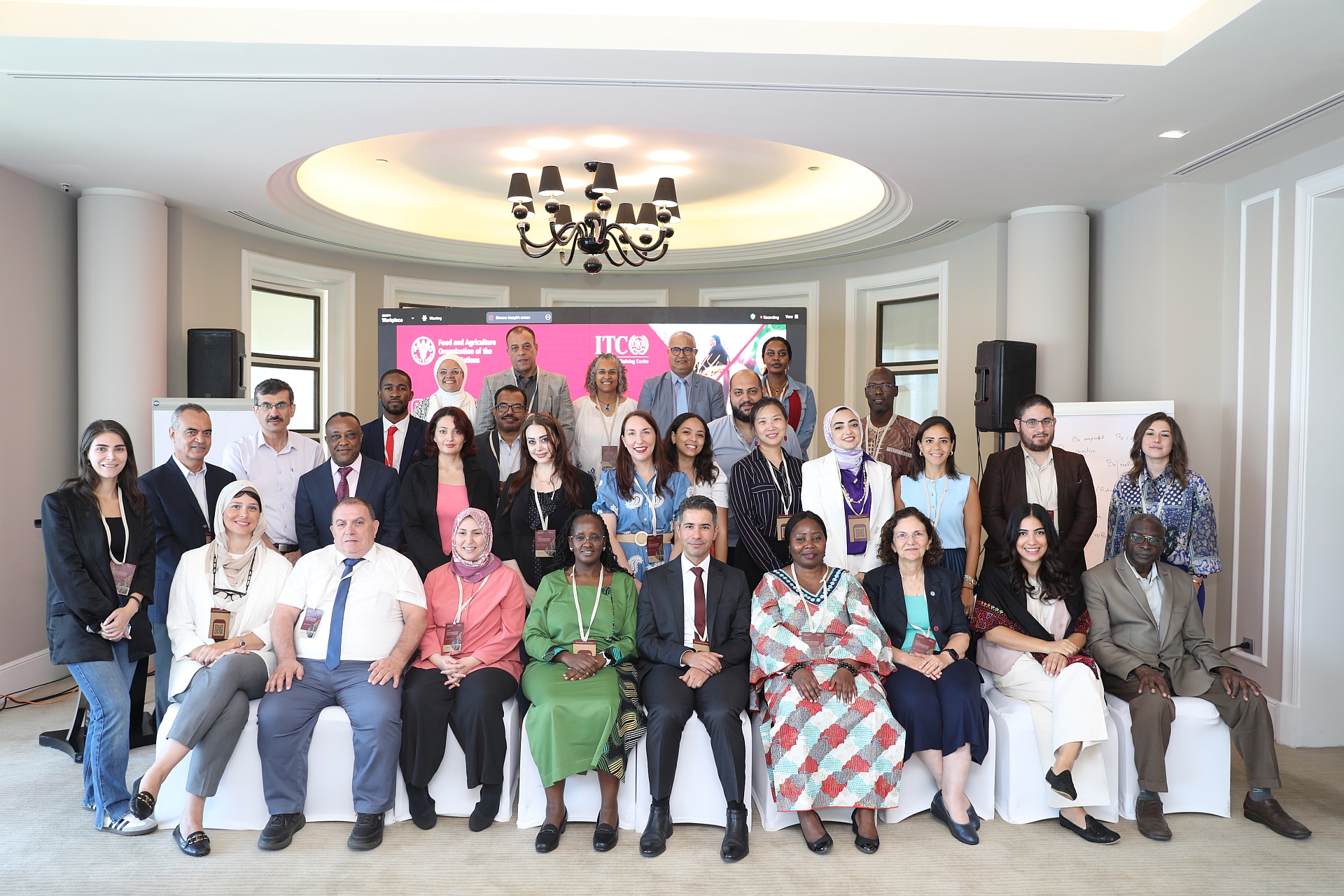FAO champions gender-responsive practices in the Near East and North Africa

©FAO
“Our commitment to gender equality is not merely a policy directive; it is a fundamental principle that aligns with FAO’s mandate towards achieving the four betters: better production, better nutrition, better environment, and better life for all, ensuring no one is left behind,” said Abdul Hakim El-Waer, FAO Assistant Director-General and Regional Representative for the Near East and North Africa (NENA).
This came during a three-day training organized by The Food and Agriculture Organization of the United Nations (FAO) titled “Championing Gender-Responsive Practices at FAO Regional Office for the Near East and North Africa” in collaboration with expert trainers from International Training Centre of the International Labour Organization (ITC-ILO).
This face-to-face training on gender mainstreaming aims to to contribute to FAO’s effort in the NENA region towards promoting gender mainstreaming by strengthening capacities of FAO staff members, especially technical officers, senior technical officers, and programme managers in the regional country offices.
This workshop is to ensure that FAO staff members have the necessary knowledge and skills to promote gender equality and women’s empowerment within agrifood systems. The training aims to help FAO staff understand key gender concepts, frameworks and principles of gender mainstreaming and their relevance to FAO’s work, mobilize knowledge to apply the new regional gender strategy more effectively, and identify gaps and opportunities across different regional priorities. The training was delivered through interactive lectures, case studies, group exercises, and practical workshops facilitated by gender experts and FAO staff members.
“Gender equality is not only a matter of fairness and justice but also essential for achieving our mission and maximizing our impact. It leads to more innovative solutions, better decision-making, and a more inclusive and productive work environment,” stated May Hani, FAO Senior Programme Office.
Achieving gender equality and women’s empowerment in agriculture, value chains and rural development is central to FAO’s goal of eradicating hunger, malnutrition, and poverty. In the NENA region, women fulfil crucial roles in agri-food value chains as farmers, entrepreneurs, and community leaders, ensuring food security and nutrition at community and household levels. This is why addressing gender disparities within agrifood systems is crucial for the overall socioeconomic progress of societies in the NENA region. Such efforts contribute significantly to the well-being of women, girls, households and communities, offering solutions to challenges like poverty, food insecurity, and bolstering economic growth and resilience.
Fostering the transformation of unequal social norms and behaviors to promote more equitable and healthier relationships between women and men, at household, community and institutional level is essential and is one the top priorities of FAO in the NENA region. Yet, the NENA region still shows some of the widest gender gaps in the world, particularly in relation to political representation and economic participation
As part of its commitment to advancing gender equality, and to help mainstream gender into its programme, FAO worked on the development of an updated regional gender equality strategy. This initiative aligns with the broader FAO Policy on Gender Equality and is tailored to address the unique challenges and nuances prevalent in the Near East and North Africa (NENA) region.
